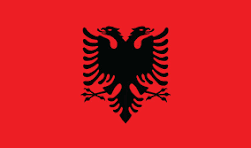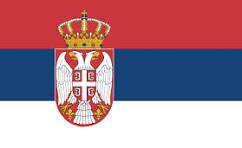In recent years, technology has been radically transforming the way we live and interact with our domestic spaces. One of the most intriguing areas of this change is the kitchen, where the introduction of smart devices and innovative solutions is revolutionising the culinary experience and our relationship with the space dedicated to cooking and conviviality. In this context, smart hoods have become a fundamental element in creating increasingly efficient and eco-friendly kitchen environments.
In this article, we will explore in detail how technological innovations have changed people's lives in the kitchen, present the different types of smart kitchens, and then delve into the smart solutions offered by Faber in the realm of kitchen hoods.
How Technology Has Changed People's Lives
Technology in the kitchen has significantly improved people's lifestyles by making meal preparation faster and more efficient, contributing to environmental sustainability, and enhancing home organisation. The kitchen, once primarily associated with tradition and manual skills, has become a highly technological and sophisticated environment: no longer just a space for food preparation, but also a place for family gatherings enriched with new interactive and experiential possibilities.
While induction hobs have replaced traditional gas or electric ones, offering a safer and faster cooking experience through the use of electromagnetic fields, smart ovens can be programmed via apps or voice commands to cook meals at the right time, providing a more enjoyable and less stressful experience in daily meal preparation. Similarly, induction pots controlled by smartphones allow for precise temperature regulation, while the culinary planning process has been simplified thanks to voice assistants suggesting recipes based on available ingredients at home. To help reduce food waste and manage the family pantry more efficiently, smart refrigerators monitor food expiration dates and send reminders for necessary shopping.
The Different Types of Smart Kitchens
The smart kitchen represents one of the most significant innovations in contemporary design, integrating advanced technologies and connected devices to enhance efficiency, sustainability, and the overall culinary experience.
Among the main advanced forms of smart kitchens:
● Kitchens with Artificial Intelligence (AI)
Artificial Intelligence (AI) is revolutionising the world of cooking, both at a domestic and professional level: kitchens integrate AI to automate tasks such as meal planning, ingredient monitoring, and recipe management. Thanks to artificial intelligence, it is now possible to generate personalised recipes based on available ingredients and users' dietary preferences: Apps like RecIdeas and DishGen leverage machine learning algorithms to create tailored meal plans, taking into account specific dietary needs (such as vegetarian or vegan).
● Kitchen Robotics
Ideal for those who want to simplify culinary operations, multifunctional robots allow the preparation of complex dishes with ease thanks to integrated scales and touchscreen displays to access numerous recipes. Still in the experimental phase, futuristic projects like robot chefs, which will soon be able to prepare recipes by watching online videos.
● Advanced Home Automation
Domotic kitchens allow remote control of lights, temperature, and appliances via smartphones or voice assistants: a technology that optimises energy consumption and increases home comfort. In practice, users can turn lights on or off and activate/deactivate appliances remotely, preparing the environment before returning home. This technology also helps reduce energy waste by automating the control of lights and devices when not in use.
● Smart Appliances
Included in the category of smart appliances are all those devices that help reduce food and energy waste. Among these are smart refrigerators that monitor food expiration dates, smart ovens controllable via apps, dishwashers that automatically adjust washing cycles based on the load, and kitchen hoods integrated with smart technologies to automatically adjust suction power based on detected smoke and odour levels.
Faber's Smart Vision: Intelligent Kitchen Hoods
As a passionate, curious brand always up-to-date with the latest technologies, Faber offers an innovative vision of smart kitchens, emphasising the integration of technology and functionality to enhance the kitchen experience with solutions designed to meet the real needs of users. This commitment primarily focuses on comfort, stress reduction, and energy efficiency, finding one of its best expressions in its kitchen hoods, which play a fundamental role in creating a technologically advanced environment.
Among the most significant innovations in this area, K-Link Technology connects the induction hob and the extractor hood, automatically adjusting the extraction power based on cooking intensity, thereby reducing energy waste. The Faber Cloud App allows you to monitor and manage the main hood settings remotely, ensuring a consistently clean environment thanks to air quality control, anytime and anywhere; thanks to the exclusive Air Quality Sensor, integrated in some ranges like K-AIR, it monitors temperature, humidity, and volatile organic compounds (VOCs) present in the environment to maintain a healthy atmosphere.
But that's not all. To transform the kitchen into a welcoming space where you can enjoy the company of family or friends without being disturbed by appliance noise, Sound Pro Technology comes to the rescue. With a futuristic diffuser, it minimises the hood's noise level when the motor is at full power, even improving sound quality.
Annoyed by the presence of moisture droplets on the hood's surface? Applied to some Faber models and particularly useful on induction cooktops where the phenomenon is more frequent, the exclusive Zero Drip technology is a system that eliminates condensation as soon as it forms: offered in the Basic and Plus versions, in the first case, it collects the condensation in a dedicated tray, while in the second, it makes it evaporate through contact with the heated surfaces.
In conclusion, as technology continues to rewrite the future of the kitchen, the possibilities seem endless. Today's smart kitchens are not just functional spaces but places where creativity and innovation meet to create unique culinary experiences, unimaginable until recently. With the advanced features offered for its kitchen hoods, Faber contributes to creating increasingly efficient solutions to integrate into contemporary homes; an approach that, for the coming years, promises even more surprising scenarios in terms of optimal home comfort and increasingly advanced sustainability.







